Evaluation of content validity for the FACT-G quality of life questionaire through multidimensional escalation techniques
Keywords:
Quality of life, neoplasms, questionnaires, validation studiesAbstract
Objective: To evaluate the structure of FACT-G latent variables in a sample of patients attending the National Cancer Institute of Colombia
Methods: The FACT-G questionnaire was applied in 473 patients with different types of cancer during 2005-2007. A factor analysis was done based on a polychoric matrix and multidimensional escalation techniques for ordinal variables determining the domain structure of the questionnaire.
Results: Breast and prostate cancer were the most frequent types of tumors. In total 54.6% were men and the mean age was 61 years (SD 11.7). The four domains of the questionnaire revealed a similar score. The factor analysis showed a similar structure to the original FACT-G with the emotional function as the less consistent domain. According to the multidimensional escalation analysis, a bidimensional structure is suitable after different adjustment indexes. Only the emotional function domain exposed a heterogeneous structure; the remaining revealed clustered structures and independence among them. Central components for quality of life were functional well-being and social/family well-being.
Conclusions: The FACT-G quality of life questionnaire applied in a sample of Colombian patients was consistent wit the original instrument. The multidimensional escalation techniques provide additional information to conventional analysis and are useful to validate quality of life questionnaires.
Author Biographies
Ricardo Sánchez, Instituto Nacional de Cancerología
Grupo de Investigación Clínica, Instituto Nacional de Cancerología, Bogotá, D.C., Colombia
Universidad Nacional de Colombia, Bogotá D.C., Colombia
Mónica Ballesteros, Instituto Nacional de Cancerología
Grupo de Investigación Clínica, Instituto Nacional de Cancerología, Bogotá, D.C., Colombia
Natascha Ortiz, Instituto Nacional de Cancerología
Grupo de Investigación Clínica, Instituto Nacional de Cancerología, Bogotá, D.C., Colombia
References
Frost MH, Sloan JA. Quality of life measurements: a soft outcome--or is it? Am J Manag Care. 2002;8(18 Suppl):S574-9.
Soni MK, Cella D. Quality of life and symptom measures in oncology: an overview. Am J Manag Care. 2002;8(18 Suppl):S560-73.
Velikova G, Brown JM, Smith AB, Selby PJ. Computerbased quality of life questionnaires may contribute to doctor-patient interactions in oncology. Br J Cancer. 2002;86(1):51-9.
https://doi.org/10.1038/sj.bjc.6600001
Cella D, Chang CH, Lai JS, Webster K. Advances in quality of life measurements in oncology patients. Semin Oncol. 2002;29(3 Suppl 8):60-8.
https://doi.org/10.1053/sonc.2002.33535
Cella D, Nowinski CJ. Measuring quality of life in chronic illness: the functional assessment of chronic illness therapy measurement system. Arch Phys Med Rehabil. 2002;83(12 Suppl 2):S10-7.
https://doi.org/10.1053/apmr.2002.36959
Webster K, Cella D, Yost K. The Functional Assessment of Chronic Illness Therapy (FACIT) Measurement System: properties, applications, and interpretation. Health Qual Life Outcomes. 2003;1:79.
https://doi.org/10.1186/1477-7525-1-79
Lee EH, Chun M, Kang S, Lee HJ. Validation of the Functional Assessment of Cancer Therapy-General (FACT-G) scale for measuring the health-related quality of life in Korean women with breast cancer. Jpn J Clin Oncol. 2004;34(7):393-9.
https://doi.org/10.1093/jjco/hyh070
Dapueto JJ, Francolino C, Servente L, Chang CH, Gotta I Levin R, et al. Evaluation of the Functional Assessment of Cancer Therapy-General (FACT-G) Spanish Version 4 in South America: classic psychometric and item response theory analyses. Health Qual Life Outcomes. 2003;1:32.
https://doi.org/10.1186/1477-7525-1-32
Conroy T, Mercier M, Bonneterre J, Luporsi E, Lefebvre JL, Lapeyre M, et al. French version of FACT-G: validation and comparison with other cancer-specific instruments. Eur J Cancer. 2004;40(15):2243-52.
https://doi.org/10.1016/j.ejca.2004.06.010
Costet N, Lapierre V, Benhamou E, Le Galès C. Reliability and validity of the Functional Assessment of Cancer Therapy General (FACT-G) in French cancer patients. Qual Life Res. 2005;14(5):1427-32.
https://doi.org/10.1007/s11136-004-5531-z
Thomas BC, Pandey M, Ramdas K, Sebastian P, Nair MK. FACT-G: reliability and validity of the Malayalam translation. Qual Life Res. 2004;13(1):263-9.
https://doi.org/10.1023/B:QURE.0000015303.68562.3f
Overcash J, Extermann M, Parr J, Perry J, Balducci L. Validity and reliability of the FACT-G scale for use in the older person with cancer. Am J Clin Oncol. 2001;24(6):591-6.
https://doi.org/10.1097/00000421-200112000-00013
Muszalik M, Kedziora-Kornatowska K, Kornatowski T. Functional assessment and health-related quality of life (HRQOL) of elderly patients on the basis of the functional assessment of chronic illness therapy (FACIT)-F questionnaire. Arch Gerontol Geriatr. 2009;49(3):404-8.
https://doi.org/10.1016/j.archger.2008.12.007
Fumimoto H, Kobayashi K, Chang CH, Eremenco S, Fujiki Y, Uemura S, et al. Cross-cultural validation of an international questionnaire, the General Measure of the Functional Assessment of Cancer Therapy scale (FACT-G), for Japanese. Qual Life Res. 2001;10(8):701-9.
https://doi.org/10.1023/A:1013851216181
Winstead-Fry P, Schultz A. Psychometric analysis of the Functional Assessment of Cancer Therapy-General (FACT-G) scale in a rural sample. Cancer. 1997;79(12):2446-52.
https://doi.org/10.1002/(SICI)1097-0142(19970615)79:12<2446::AID-CNCR23>3.0.CO;2-Q
Cella D, Hahn EA, Dineen K. Meaningful change in cancer specific quality of life scores: differences between improvement and worsening. Qual Life Res. 2002;11(3):207-21.
https://doi.org/10.1023/A:1015276414526
Crane PK, Gibbons LE, Narasimhalu K, Lai JS, Cella D. Rapid detection of differential item functioning in assessments of health-related quality of life: The Functional Assessment of Cancer Therapy. Qual Life Res. 2007;16(1):101-14.
https://doi.org/10.1007/s11136-006-0035-7
Smith AB, Wright P, Selby PJ, Velikova G. A Rasch and factor analysis of the Functional Assessment of Cancer Therapy-General (FACT-G). Health Qual Life Outcomes. 2007;5:19.
https://doi.org/10.1186/1477-7525-5-19
Kemmler G, Holzner B, Kopp M, Dünser M, Greil R, Hahn E, et al. Multidimensional scaling as a tool for analysing quality of life data. Qual Life Res. 2002;11(3):223-33. 20. Kruskal JB, Wish M. Multidimensional scaling. Beverly Hills, CA: Sage Publications; 1978.
https://doi.org/10.1023/A:1015207400490
Everitt B, Rabe-Hesketh S. The analysis of proximity data. London: Arnold; 1997.
Ramsay JO. Is multidimensional scaling magic or science? Contemp Psychol. 1988;33(10):874-5.
https://doi.org/10.1037/026103
Hobart JC, Cano SJ, Zajicek JP, Thompson AJ. Rating scales as outcome measures for clinical trials in neurology: problems, solutions, and recommendations. Lancet Neurol. 2007;6(12):1094-105.
How to Cite
Downloads
Downloads
Published
Issue
Section
License
Todos los derechos reservados.




